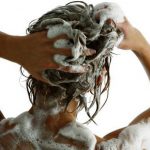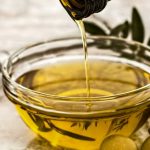A frequent confusion due to their enormous similarity exists between having dry scalp and dandruff, but the truth is that they are two different conditions both in their origin and in their treatment. With both it feels the same: itching, falling scales and in general that discomfort that it gives when it is noticed with the naked eye. Here are the difference between dandruff and dry scalp.
The differences
To avoid this doubt of dandruff vs dry scalp and seek a professional solution, it is good to know that dandruff is the result of a fungal infection or skin lesion that must be treated by a dermatologist depending on its severity.
A dry scalp is one that does not produce enough lubrication due to various factors, such as poor diet, a lot of exposure to dry cold air, age, lack of care, frequent washing with abrasive shampoo, and lack of hydration or dermatitis.
To recognize the difference on the ground you have to look closely.

The flakes on the dry scalp are smaller and whiter. Tiny streaks or lines that are typical of the skin can often be seen.
Dandruff, on the other hand, presents large flakes, tinged with yellow and oily, usually when you touch the area that is flaking you can notice oil on the tips of your fingers.
This is because the scalp eliminates its dead cells more quickly and when these scales accumulate, they generate an ideal place for pathogens such as fungi.
Signs of a dry scalp
You might have one or more of the mutual symptoms. These include:
- Peeling skin
- Tightness in the scalp
- Itch
- Redness
What produces a dry scalp?
Dryness occurs when the skin cells of the scalp’s natural moisturizing defences are damaged. Healthy skin retains moisture so the body is hydrated. An irritated scalp damages the outer layer of the skin. This allows essential moisture to escape and the skin on the scalp to dry out. Typically, a dry scalp is caused by dandruff.

A dry scalp is a symptom of dandruff. Dandruff damages the skin on the surface of the scalp and causes dryness and irritation. If the root cause of a dry scalp is this common condition, you should choose the right shampoo to treat it. The right shampoo should do the following in terms of dandruff versus dry scalp confusion:
Moisturize the scalp to relieve dryness
Treat the root cause: dandruff
How to treat a dry scalp caused by dandruff
Dry Scalp Care shampoo with almond oil with 3 moisturizers provides instant hydration to the hair and scalp and also protects you from dandruff. The formula provides deep hydration that you can feel from the first wash. Provides effective relief for dry scalp 1 and its symptoms, including itchiness 1 and redness.





 Hi, I’m Chelsey Bennett, founder and Editor-in-Chief of www.chelseybennett.com. Now in its second year, the site has grown to become the ultimate beauty and wellness destination for insiders.
Hi, I’m Chelsey Bennett, founder and Editor-in-Chief of www.chelseybennett.com. Now in its second year, the site has grown to become the ultimate beauty and wellness destination for insiders.